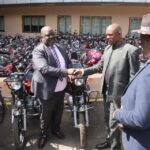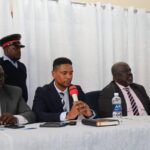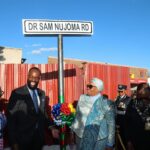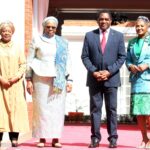In recent weeks, President Hakainde Hichilema’s administration has come under increasing scrutiny over its communication efforts, prompting calls for a shake-up of the public relations (PR) team. Prominent Zambian activist Laura Miti has been one of the most vocal critics, describing the current communications strategy as “comatose” and urging the President to strengthen his PR team.
Miti, known for her outspoken views on Zambian politics, expressed concern over the lack of a cohesive and professional communication approach. She pointed to the failure of the current team to effectively manage the government’s messaging, leaving the administration vulnerable to misleading narratives and criticisms, particularly from figures such as Emmanuel Mwamba, a former government official and media personality critical of the government.
The activist’s comments underscore a perceived gap in the administration’s ability to counter accusations and misinformation, particularly on social media platforms. Miti further argued that the President’s personal involvement in public communication, often addressing issues directly, has resulted in his actions appearing “unpresidential.” She believes that these tasks should be handled by a professional PR team, rather than by the President himself.
“If the President resolutely refuses to put together a PR team that can easily show the stories that Emmanuel Mwamba expertly puts together to be mostly lies or spin, then he cannot be excused for unpresidentially doing what should be left to his communication team,” Miti stated. Her remarks emphasized the need for a competent team capable of providing an effective counter-narrative, rather than simply reshaping social media discourse.
This growing criticism highlights the ongoing tension between the government’s communication strategy and public expectations. Critics argue that effective communication is essential, especially as the administration faces pressing national issues, including power shortages, economic challenges, and the implementation of various reforms. Public sentiment, according to observers, is shifting, with many calling for more responsive and transparent communication from the administration.
The debate surrounding the President’s PR team has sparked a wider conversation about the role of communication in governance. Effective PR is not just about managing public perception but also about conveying government achievements and engaging with the public on issues that affect their daily lives. As the government seeks to address pressing national issues, the demand for a stronger and more efficient communication team remains a key topic of discussion.
In the face of mounting criticism, President Hichilema’s administration is now confronted with a choice: to overhaul its PR strategy or risk further damage to its credibility and public trust. As the discourse around communication intensifies, the importance of a robust, responsive, and professional public relations team becomes clearer, reminding political leaders that their words and actions must align in order to effectively serve the public.






